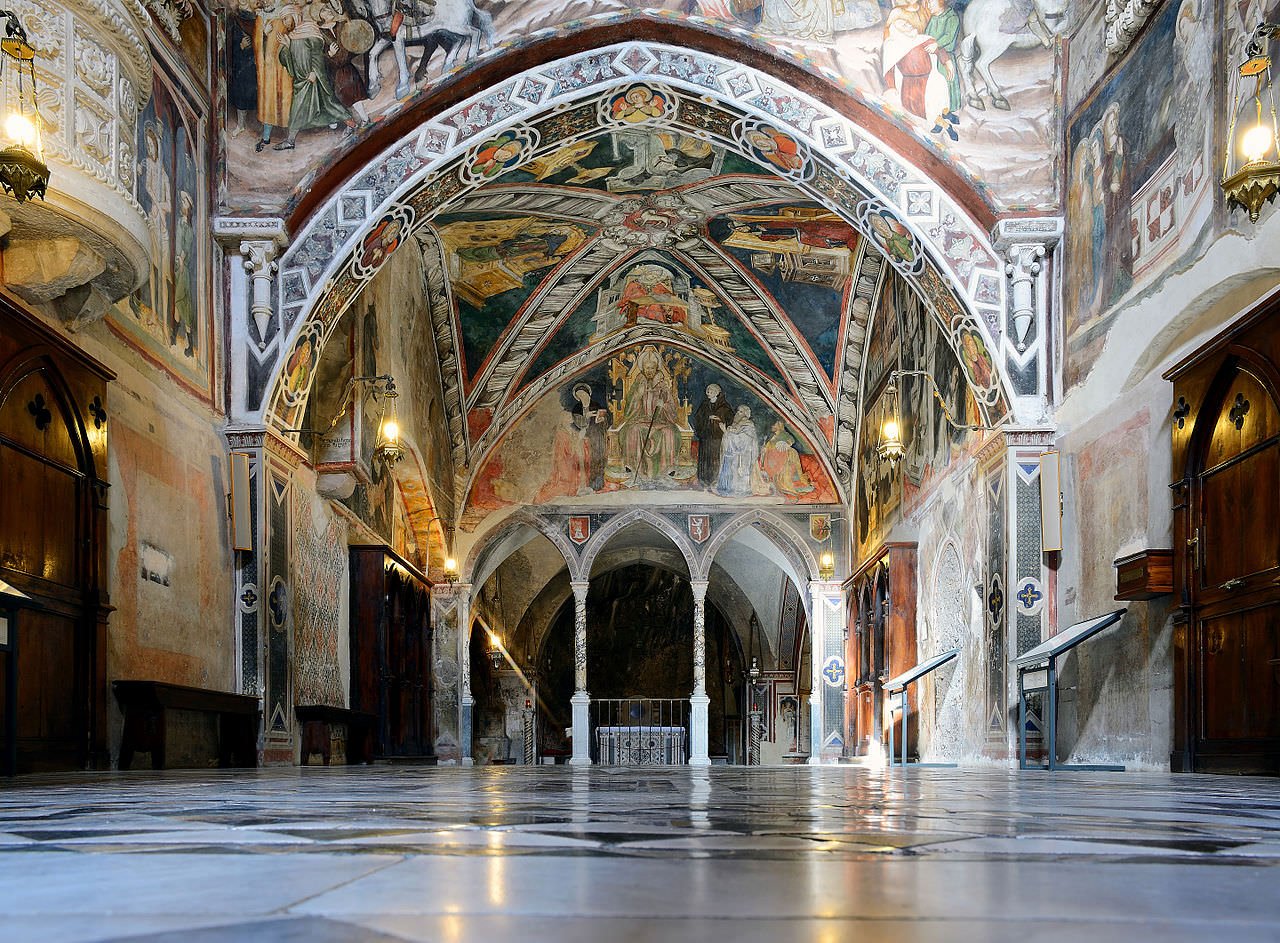The medieval church had many of the attributes of the modern state. Once baptized, everyone was subject to its laws, paid its taxes, and lived at its mercy. Yet while the rulers of the church often strove to create the machinery that would make this absolutism work, they never fully succeeded.
The story of their efforts, the degree of their success, the measure of their failure, the nature of the opposition to them are in some degree the political history of the Middle Ages in the West.
Having no armies of their own, the popes depended upon kings and princes to raise armies for the purposes of the church. Even a mighty secular ruler often bowed to the commands of a pope. The pope had powerful spiritual weapons at his disposal: excommunication and interdict. Excommunication deprived the believer of the sacraments
and threatened that person with hell fire if he or she died while excommunicated. Interdict stopped all church services in a given area except baptism and the rites for the dying; none of the population could be married, take communion, confess and be absolved, or be buried with the assurance of salvation. A population under interdict sometimes became desperate, and its ruler often yielded.
The medieval church gradually saw its authority diminished by the growth of secular states. Yet even rulers of those secular states who challenged the popes took it for granted that they and all their subjects and the subjects of other kings and princes were automatically Christians. Holy relics were inserted into hollows built in the throne of Charlemagne, who often disagreed with the pope.
The proudest possession of Otto the Great was the holy lance, which, legend said, had been thrust into the side of Christ and had belonged to Constantine the Great. Such relics symbolized the total dependence of even the most powerful ruler upon the will of God and served as a sign that he had God’s favor. Coronation ceremonies emphasized the sacred character of the monarch being consecrated and were indispensable for public acceptance of the ruler.
But the economic expansion of the eleventh century tended to diminish the sacred character of secular monarchy, as society grew more complex and more sophisticated methods of government needed to be devised. As the king was perceived to be merely a human being, the churchmen, the churchmen alone, for a time, seemed to have a monopoly of spirituality. And since the secular rulers and their retainers were often unable to read and were almost always poorly educated, the tasks of secular government often fell to clerics.

